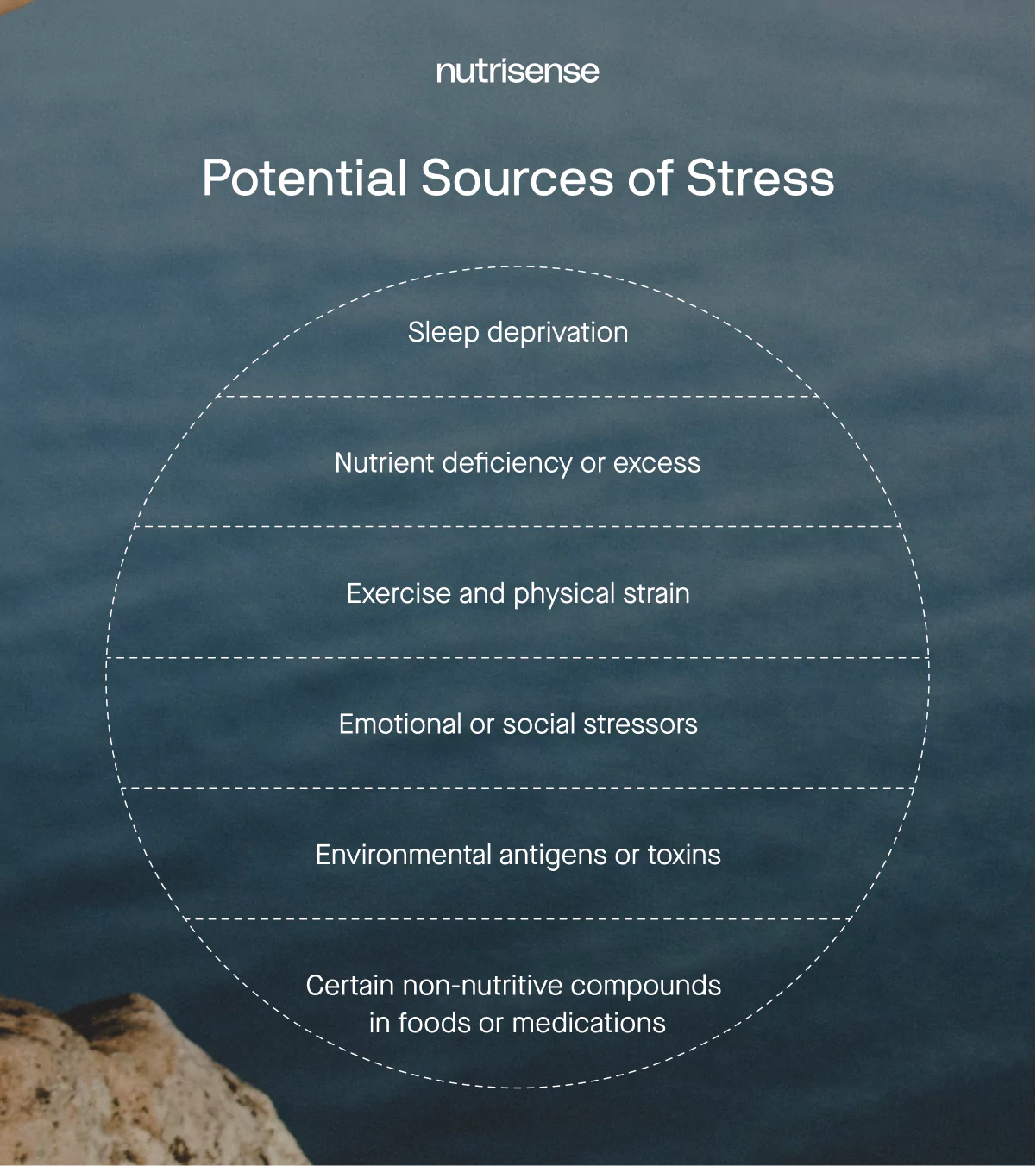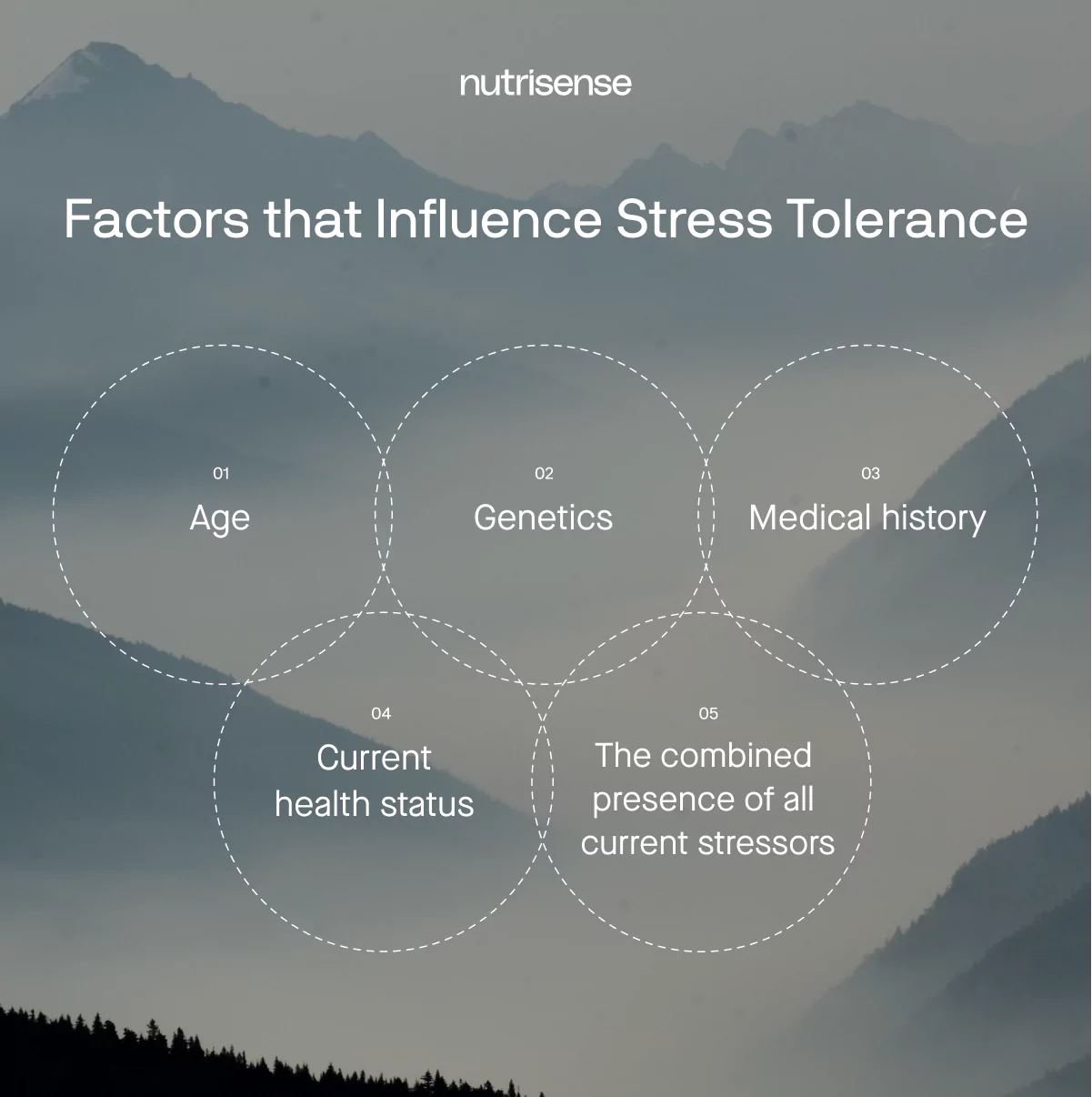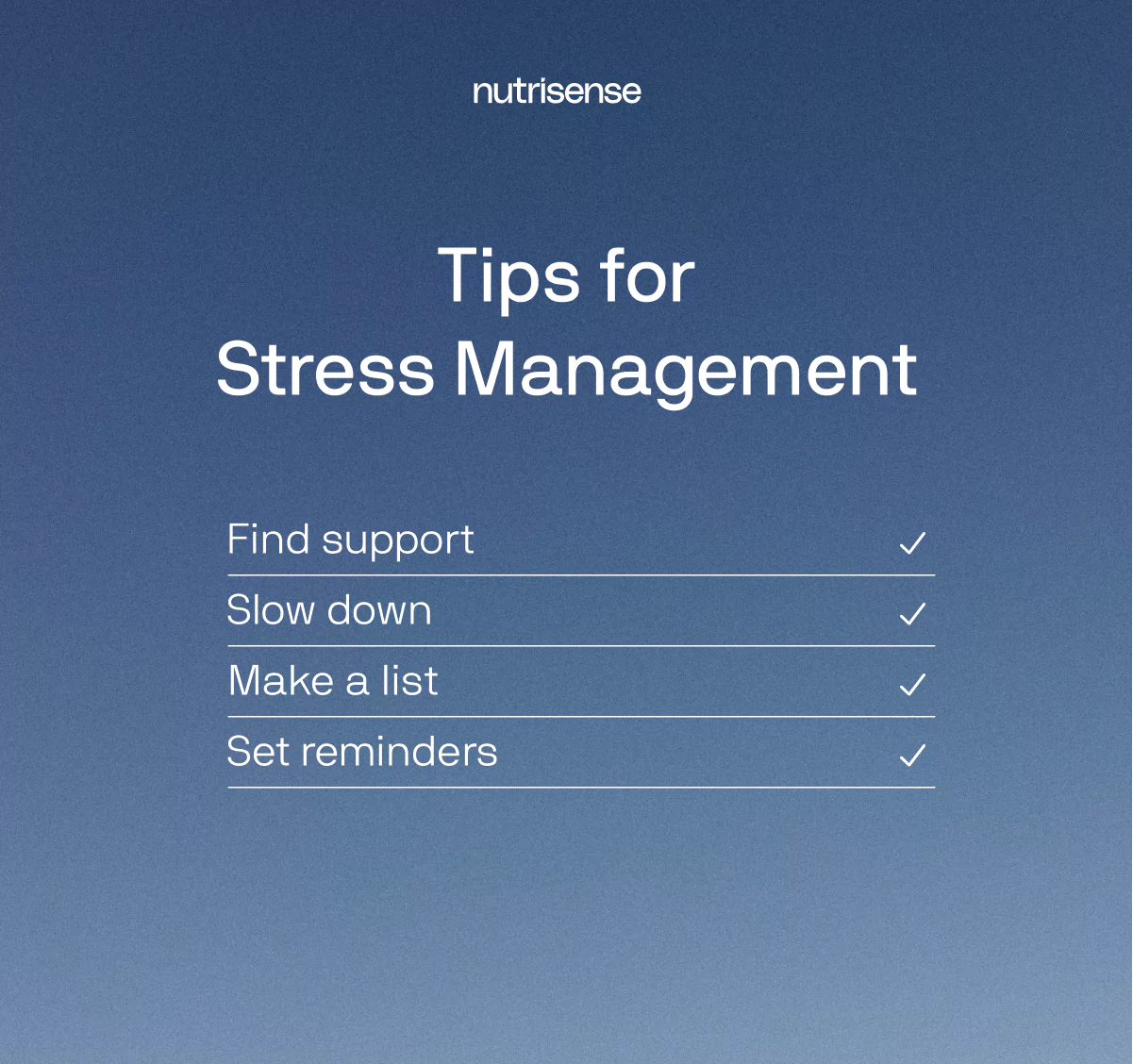What are the Different Types of Stress?

Key Takeaways
It’s no mystery that stress can make you sick—but are there different types of stress? If you’re looking to learn more about the science of stress and how it affects your well-being, you’ve come to the right place.
Different types of stress can have different effects on the body. Some types of stress may actually be beneficial, while others can potentially lead to health problems. So how can you know the difference? And how much is too much?
Read on to find more about the causes of stress, stress management techniques, and how different people experience stress.
Good vs. Bad Stress

Stress gets a bad rap, but not all stress is bad. Stress, by definition, is any pressure applied to a location or system—in this case, the system is your body. Whether this pressure ends up being helpful or harmful really just depends on the dose and the timing.
For example, when your immune system is developing early in life, it encounters many new environmental microbes, including pathogens. These pathogens are stressors, but in the right dose they may be helpful in educating your immune system to allow it to better protect you as you age.
Another example of stress that can be beneficial is in the form of weight-bearing or load-bearing exercise. Here, you are applying stress to your bones and muscles which will support improved bone density and muscle strength.
However, if you overwhelm the body with too much of any stressor, it can become harmful. If your immune system is overwhelmed by pathogens, it may fail to protect you and you’ll get sick. If you try to lift more weight than you can tolerate, you may break a bone or strain a muscle.
Stress might be an inevitable part of life, but how much stress is simply too much? Let’s get into it.
Sources of Stress

Different kinds of stress can come from different sources. Your body’s response to these stressors and whether they help or hurt depends on your individual health status and ability to adapt as well as the amount (or dose) of the stressor in question.
Common sources of stress can include:
- Emotional or social stressors
- Nutrient imbalances, including glucose imbalances
- Exercise and physical strain
- Sleep deprivation
- Environmental antigens from pathogens, toxins, or allergens
- Intolerance to certain foods, medications, or supplements
This dose-dependent effect of stress is related to the concept of hormesis, which is one way of explaining how the body adapts to different amounts of stress over time.
Hormesis and Your Health
In biology and medicine, hormesis is defined as an adaptive response of cells and organisms to moderate intermittent stress. When it comes to your hormesis and your health goals, the intensity and duration of the stressor in question can make all the difference.
Essentially, the amount of a given stressor that is well-tolerated by someone else might not be tolerated by your body. For this reason, finding the right balance and avoiding overloading your body with too much stress is the key to harnessing the benefits of stress while avoiding the detrimental ones.
Each person’s stress tolerance is unique. It is influenced by personal factors such as:

- Age
- Current health status, including nutritional status
- Medical history and other medical conditions from the past
- Genetics
- The combined presence of all current stressors or allostatic load
Impact of Allostatic Load
One of the factors influencing stress tolerance is something called allostatic load, which is the cumulative burden of life event stressors. As long as your body has the ability to cope or adapt to the incoming stress loads, you’re in good shape.
But if those stress loads exceed your individual ability to cope and effectively adapt, then allostatic overload occurs, making illness or injury more likely. Fortunately, your body is pretty great at giving you feedback about what works or doesn’t work for it where stress is concerned.
You just have to know what it’s telling you and how to spot the signs. Now, let’s learn about two categories of stress and some of the main symptoms of stress overload.
What is Acute Stress?

Acute stress is a type of stress response that involves activation of the body’s stress-response system during a stressful event, followed by de-activation of this system within a relatively short period of time. Think of pressing a button to ring a doorbell and then releasing it quickly.
Maybe you have an urgent work deadline to hit this week, a night of poor sleep, fail to meet your nutrition needs one day, or have a fight with your partner. All of these could be considered acute stressors if they let up in a short period of time and your body is allowed to return to homeostasis and balance.
However, let’s say your urgent work deadlines don’t let up for months, you regularly struggle with nutritional imbalances, or you have an unhappy marriage over a long period of time. Now, you could have a problem.
These examples are more like pressing the doorbell button for days without releasing it. This is when acute stress may become chronic and the risk for illness or injury may increase.
The Stress Response: How it Works
The body’s stress-response system is a complex network of neuroendocrine signaling that happens across dozens of different axes. Stress affects all systems of the body including cardiovascular, respiratory, endocrine, gastrointestinal, nervous, muscular, and reproductive systems.
Stress activation, which involves activation of the sympathetic nervous system, may cause a cascade of changes in your body. After the stressor itself subsides, your body should return to pre-stimulation levels. The parasympathetic nervous system helps your body recover and dial things back down.
Here are some common events and symptoms of acute stress that occur in the body:
- Increasing levels of stress hormones like cortisol and epinephrine
- Changes in blood pressure, blood flow, and heart rate
- Airway constriction, shortness of breath, and rapid breathing
- Changes in blood glucose
- Increased rates of cellular metabolism
- Altered gastrointestinal motility, digestion, and nutrient absorption
- Increased muscle tension
From the perspective of your body, the goal of these changes is to help you respond quickly to a potentially life-threatening situation. That’s why it’s called your “fight-or-flight response.”
What is Chronic Stress?

The main difference between acute and chronic stress is the dose and duration of the stressor and how well or quickly your body adapts and returns to normal. Every stressor that acts acutely can also become a chronic stressor when applied more regularly or in higher amounts over time.
With chronic stress, a series of acute stressors flow back to back and the body may also have difficulty adapting. Without the ability to recover adequately, your body’s allostatic load increases.
Warning Signs of Chronic Stress
Acute and chronic stress may not be so fundamentally different. Rather, they exist on a nuanced continuum. As you now know, an acute stressor can become a chronic stressor over time, or may simply come about as a series of acute stress responses.
Over time, when exposed to chronic stress, your body may begin to develop maladaptive responses. These can be detected through symptoms or conditions such as:
- Fatigue
- Mood imbalances, including more anxiety and depression
- Upset stomach or digestive problems
- Chronic pain or cyclical flares of pain such as migraines
- Difficulty concentrating or remembering
- Weakened immune system
- Problems managing blood pressure
- Changes in hormones that lead to menstrual irregularities, loss of libido, or even impaired fertility
- Impaired glucose tolerance
- Weight changes
- Difficulty falling asleep or staying asleep
- Delayed wound healing
- Increased resting heart rate
With chronic stress exposure, you may also increase your risk for diabetes, cardiovascular disease, obesity, and cancer, among other conditions. Research has also revealed that continued rumination or worry about a given situation may prolong a stress response in your body.
4 Simple Changes You Can Start Today for Stress Relief

Whether you feel you struggle with stress eating, fatigue, trouble sleeping, or simply want to lower your risk for things like prediabetes and diabetes, understanding how and where stress shows up in your daily life is a crucial first step. On the road to change, everyone has to start somewhere.
If you know you struggle but need a hand with managing stress, here are some relaxation techniques and additional tips to get you started:
1) Find Support
Having someone there to help you unpack your current challenges, collaborate on a workable plan, and hold you accountable to the changes you want to make is important. Choosing a qualified healthcare provider may be ideal, since they are able to offer unbiased support as well as professional insight.
Maybe this is a behavioral health therapist, a nutrition professional, or both! Talking to a friend or loved one for support is another good option.
2) Slow Down

Even if it’s just for a day or an hour or half an hour, make a decision to set aside some time without screens where you can pause and take a mental health break. During that time, you may want to simply enjoy the rest you’ve needed.
This applies to eating too: take your time while chewing and savor your meal. Eating too quickly can make your body feel more stressed and can also affect your digestion, which adds more stress to your body. By eating slowly, you can avoid these extra stresses and feel better overall.
Or you may even decide to use that quiet space to reflect on your sources of stress and identify in a non-judgemental way where you feel your stressors originate.
3) Make a List
Try making a list of where you feel your stress comes from. Do you struggle with balanced and consistent healthy nutrition? Are you juggling a multitude of work or social commitments with little to no down time? Seeing your stressors laid out can help you identify a manageable starting point to help you start making interventions.
4) Set Manageable Daily Routines
Stress often piles up because you get off track in a few small ways throughout the day and by the end of the day, you start to feel overwhelmed with the way it’s all built up. As a result, your stress levels can feel even more unmanageable.
Creating a daily routine is like setting up important rules and a strong base for our lives. Even when we feel stressed, having a daily routine helps you go back to our strong foundation and handle stress better. It's like building a shield to protect us from stress.
To start, you can have a bedtime routine with calming music or light stretching, a cozy bedroom with nice smells like lavender or chamomile. In the morning, spending at least 10 minutes doing breathing exercises helps reduce stress hormones and sets a positive intention for the day.
Also, eating a protein-rich breakfast keeps our blood sugar steady and helps manage stress. Remember, small things we do every day can make a big difference in how we handle stress.
Getting a Handle on Your Stress

Contemplating the sources of stress in your life may itself feel a little stressful! But take a deep breath and realize you don’t have to solve everything overnight—making small adjustments one day at a time can lead to more sustainable changes.
Focus your energy on bringing change to the areas of your life that you feel you have the most power over and chip away at ruminating less on the areas you don’t. Small changes can help you prevent burnout and ensure that short-term stressors don’t snowball into bigger health issues over time.
Find the right Nutrisense programto turn insight into progress.
Go Beyond Glucose Data with Nutrisense
Your glucose can significantly impact how your body feels and functions. That’s why stable levels are an important factor in supporting overall wellbeing. But viewing glucose isn't enough. Nutrisense, you’ll be able to learn how to use your body's data to make informed lifestyle choices that support healthy living.
One-to-one coaching
Sign up to access insurance-covered video calls to work with a glucose expert: a personal registered dietitian or certified nutritionist who will help tailor your lifestyle and diet to your goals.
Monitor and measure what matters
With the Nutrisense CGM Program, you can monitor your glucose with health tech like glucose biosensors and continuous glucose monitor (CGM)s, and analyze the trends over time with the Nutrisense App. This will help you make the most informed choices about the foods you consume and their impact on your health.
Find your best fit
Ready to take the first step? Start with our quiz to find the right Nutrisense program to help you take control.





